Interview | Performer, Director, Teacher and Theatremaker Dr Bridget Boyle
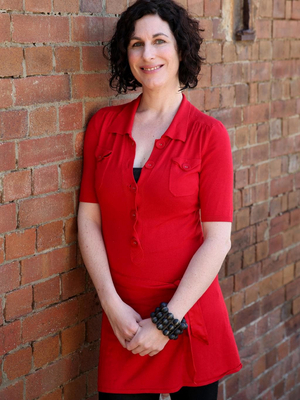
Bridget Boyle is an Australian-based performer, writer, director, researcher and teacher in Drama, with a focus on comedy and gender. In 1998, she co-founded Debase Productions with Liz Skitch and Robert Kronk, and since then their theatrical works have been performed in venues and festivals across Australia and internationally. She has performed and directed for the Brisbane Festival, Queensland Theatre, State Theatre Company of South Australia and the Out of the Box Festival. She holds a doctorate in Drama and is one of the funniest and the most giving human beings you will ever meet. I'm so so grateful to be having her on this segment. Here's what Bridget had to say...
VIRAG: How has the coronavirus impacted your own creative practice as well as the plethora of production companies that you're involved with - whether it be artistic director, director, co-creator, actor etc?
BRIDGET: To put it boldly - I went from having almost a year of back-to-back paid freelance work (working for a range of companies in a range of different roles) to nothing in the space of 2 weeks. Well, that's a bit dramatic. Most of the work has been postponed rather than cancelled - although there's massive uncertainty as to whether some of it will happen at all. A small portion of the work was able to shift online - a couple of creative developments where the project is at the script development stage.
I haven't yet attempted to make more physical work or do physical training work online yet, and am unsure how this might work. Every company or ensemble that was employing me have been wonderful in trying to find either new ways to work, to shift dates and repurpose funding so that artists can work.
The most difficult thing for me personally has been the struggle to maintain good mental health. I'm extremely lucky in that I have a partner whose job has so far not been affected, so am not in financial hardship, but I know many many people who are wondering how they will pay the rent or feed their families (and of course the arts industry is not alone in this right now). My financial security notwithstanding, the anxiety engendered by absorbing terrible news from overseas coupled with worry for the vulnerable people in my life, on top of professional uncertainty has been hard to manage.
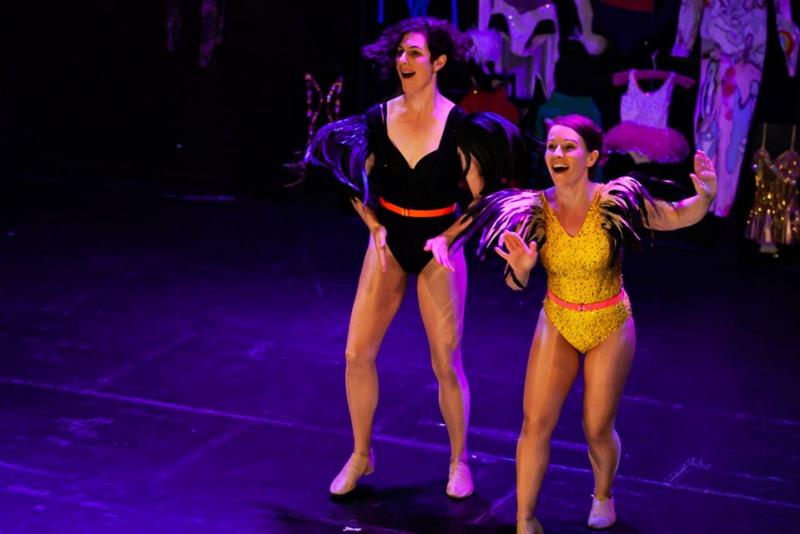
VIRAG: How did you become involved with the arts and, more specifically, the arts sector in Brisbane?
I moved to Brisbane to do a drama degree at QUT in the late 90s and never left. Mainly because I formed a theatre company with 2 friends from my course and we liked it so much we kept going. It was so much fun learning on the job and working out how to create, produce and on-sell new theatre work. It can sometimes be frustrating dealing with the cultural cringe that STILL exists when the industry checks your postcode, but it is possible to carve out a career here and there are audiences for all kinds of work right here in Brisvegas.
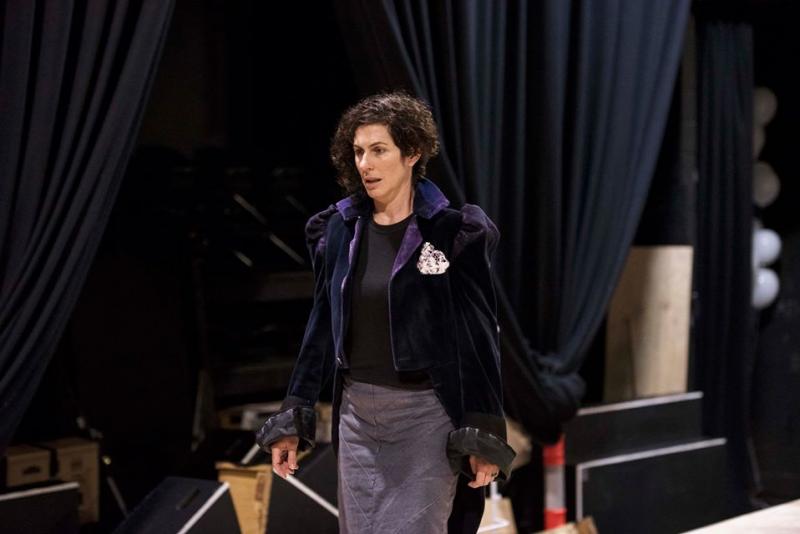
VIRAG: What are the ups and downs of being an artist? Are their any 'ups' in our current coronavirus climate?
BRIDGET: The ups are pretty easy to articulate - I could be wrong but not many people join an accountancy club just for fun in their spare time. I'm not aware of any Cork and Courtroom sessions where lawyers teach the finer points of tort law whilst swigging a glass of Chardy. Making art is (mostly) fun. Of course, when you are lucky enough it becomes a job rather than a hobby, and like any job there are times when you don't feel like getting out of bed to go and do it. The downs are also pretty clear- lack of job security, or any kind of security really - and the current situation has sadly made them more extreme. It's hard to say what's good about now, except perhaps the staunch solidarity that's been on display within the arts community.
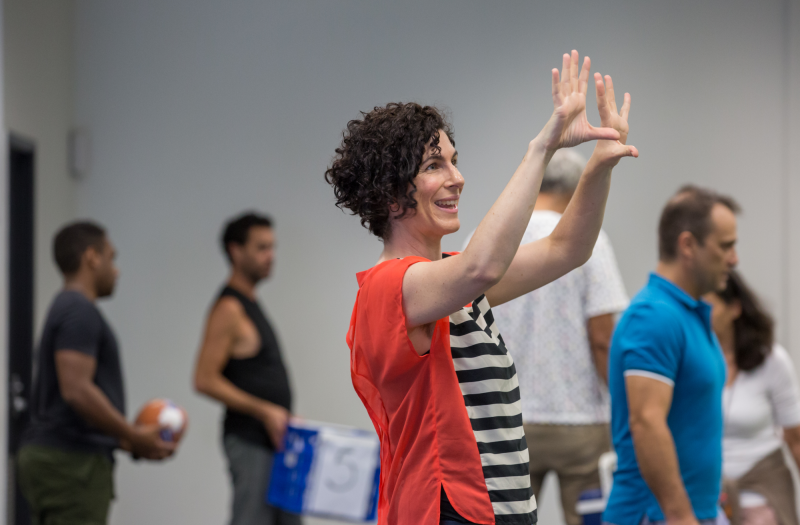
VIRAG: I've interviewed a few artists and creatives recently, as well as sat down with my own friends and colleagues, and we've found ourselves conversing a lot about the power of stories and storytelling in our communities, schools and homes. Especially now. Would you agree that, as an artist, now is the time to really connect with our community and share stories, whether it be new or old?
BRIDGET: I think it's easy to get sentimental about the position of the arts in contemporary society. Most people don't care about them. Truly. Even though they may consume arts product in the form of music, online games, streamed short form drama/ comedy etc, I'm not convinced they care. Read the comments under articles about how the performing arts industry is suffering. Actually don't, it's depressing. But sorry, I'm being too cynical, and absolutely, I do belive stories and storytelling is where it's at, but I think that "connecting" with our audience might not look the way we think it does. TBH the story I've watched recently that resonated with me most was a couple of the TikTok pass the makeup brush challenges - one featuring a group of clans from near Coen (pass the ochre) and one featuring a really long chain of Inuit women.
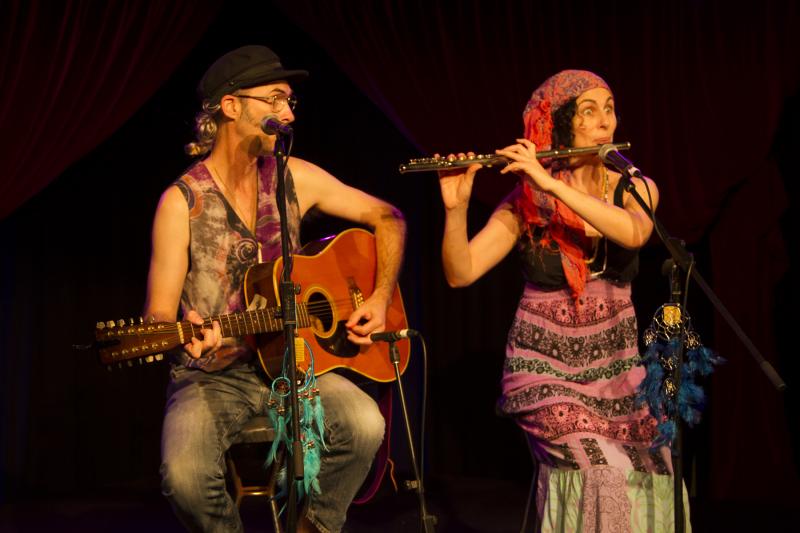
VIRAG: Lastly, what advice would you have for any local artists that have had productions postponed, gigs lost and creative developments postponed?
BRIDGET: Look after yourself and do whatever you need to do right now to ensure your physical and mental wellbeing. Take a job delivering food or stacking shelves - these jobs are utterly vital (of course, they always have been, and now this is starkly apparent) to pay the rent is fabulous and you should hold your head high, knowing you are contributing. Reach out and ask for help if you need it - there are lots of avenues for professional free counselling and also crisis funding (AEBF, etc). Reach out and do something for other people - it makes you feel great! - who may be suffering. It's not being overdramatic (!) we are in an actual real life crisis so it's ok not to be ok. Try to let tomorrow be tomorrow - it's fine to start making post-lockdown plans but these will necessarily shift and change. As my dad says, try not to worry about what you can't control. And if anyone can find out how to do that, could they please tell me.
Comments
Videos

